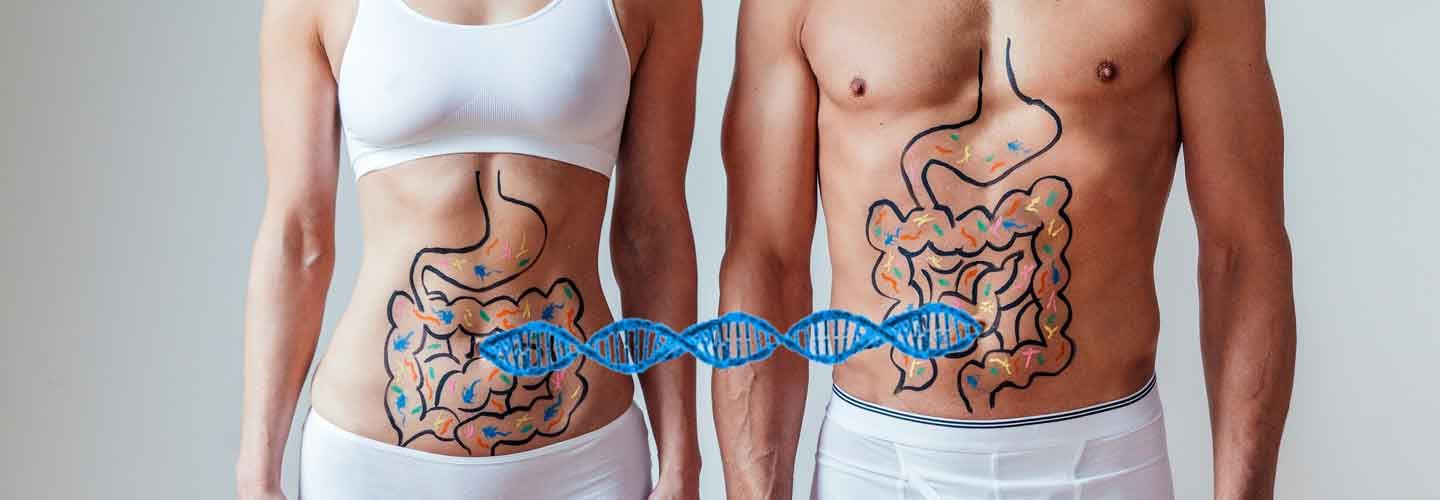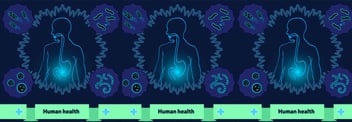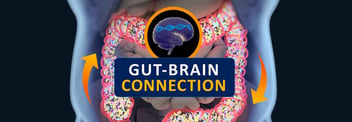Your Mighty Moody Microbiome – Part 3 You’re Married to Your Ninety Trillion Bugs – “In Sickness and in Health”
- Home
- Blog

Dear Reader, as a psychiatrist, it’s always fascinating to see which time-worn concepts from my field of work find their way into the broader culture. I enjoy observing how cultural movements give rise to pop-psychological “trends”, and while it can be frustrating to see certain concepts stray from their original meaning in our field, I believe that, overall, bringing psychological ideas into our daily lives provides a net good to society. That said, I’ve been watching the rise of self-care with fascination—mainly because of the question implicit in its explosion onto the pop-culture scene: why now? I believe the answer lies in two places: first, a growing mistrust in relying upon institutions and the people who serve them; and second, in a long-held truism—if we want to help others, we must help ourselves first—and yet, with our ever-growing list of people and tasks to juggle, helping ourselves first has never felt harder. Have you ever felt yourself brushing off the needs of your own body or mind in pursuit of ensuring the happiness of a loved one? Have you ever taken your own body for granted while focusing on the health and wellbeing of someone else’s? If you recognize the importance of self-care but continue to neglect to put it into practice, then I have good news for you. Today, I am going to tell you about a newly identified organ in your body—an entity that, if nurtured, can protect you from disease, can prevent obesity, can stabilize your mental health—and could possibly even aid in solving an addiction. This entity is entirely distinct from you. However, it also happens to live inside of you. Consider caring for this distinct organism within you as a stepping stone to caring for the living organism that is you! If you haven’t guessed yet, the entity at hand is your microbiome. In this third installation in our series dedicated to your Mighty Moody Microbiome, we’re going to take a look at what factors keep your microbiome happy and healthy—and what factors might be hurting its chances to thrive.
What is a Healthy Microbiome—and What Can It Do for Me?
As we discussed in Part 1 and Part 2 of this series, the bacteria that live within us are a force to be reckoned with. Our microbiomes contain three to ten times as many cells as the rest of our bodies. The genes of our gut bacteria are 150 times larger than our human genome. Perhaps most tangibly shocking, the mass of our body bacteria can reach up to nearly 3.5 pounds! These bacterial cells can send important signals to our brains. They manufacture neurotransmitters, hormones, and vitamins; they help program the immune system; they facilitate food digestion and maintain the integrity of the inner lining of the bowel to prevent “leaky gut syndrome;” they communicate directly and indirectly with the brain; they epigenetically regulate DNA in cells throughout the body; and so much more we don’t even understand yet! If not taken care of, they can cause inflammation, gut problems, obesity, insulin resistance (type 2 diabetes), and so much more. They can even cause neurodegenerative diseases over time. If you’ve been following this series, you know what makes the microbiome mighty. But what, exactly, makes it healthy? The answer to that lies in the 1000 species of bacteria that may live in our gut. Think, for a moment, of your body as the globe, and those thousand species as the people, plants, and animals. Our globe is stunningly beautiful—and its resiliency for hundreds of millions of years up till this point has been made possible by the incredible abundance and diversity of species. The combination of abundance and diversity allows life to thrive in nearly every realm—and that includes your gut. The answer to what makes a healthy microbiome is actually quite simple: a healthy microbiome is both an abundant and a diverse microbiome, comprised of as many healthy bacterial species as possible, with an absence of “disease-causing bugs” that represent infectious bacteria in the gut, and the destructive inflammation of the gut, the brain, and every other organ of the body that comes along with them.
When a microbiome is healthy, it helps the body sustain cellular equilibrium and homeostasis . When a microbiome is unhealthy—that is, populated with less diverse and/or pathological bacteria—the gut is thrown into a state of dysbiosis, which is linked to many diseases such as inflammatory bowel diseases (IBD), irritable bowel syndrome (IBS), diabetes, obesity, cancer, cardiovascular disease, and central nervous system disorders such as depression, anxiety, bipolar disorder and dementia. Your microbiome is like a loved one; take care of the relationship, and you shall both reap the rewards. Neglect it, and it can turn against you, leaving your body and mind feeling not quite right—or worse. Three factors specifically can lead to positive or negative gut-health outcomes. Let’s take a look at each individually, and as we do, I urge you to consider where you fall in each of these realms, and how you might be a better friend to the Mighty Microbiome living inside you.
You Are What You Eat—and So Is Your Mighty Moody Microbiome
Your Microbiome is “Mighty” in how forcefully and extensively it influences our physical health. It is “Moody” in that it deeply influences our mental health and moods. And it is “Mighty Moody” in that can suffer from its own “rapid mood swings.” What do I mean by that? Popular culture has known for decades that diet plays an important role in physical health—but numerous studies are now showing that diet also plays a huge role in our day-to-day wellbeing—heavily influenced by the effects of certain nutrients on the health of the microbiome itself. The reason for that lies in the interplay between the food we digest and the bacteria helping the digestion along. If feed our microbiome a diet that it “loves,” we can maintain that critical abundance and diversity of gut bacteria that is crucial for maintaining the homeostasis among and inside of our body’s 32 trillion cells. However, if we eat a diet that doesn’t sit well, that abundance and diversity will deplete itself and leave us vulnerable. As one article states, “Dietary intake alters gut bacteria, which in turn alters host metabolism, which in turn can lead to host diseases.” And as for those “rapid mood swings,” unhealthy changes in your diet can, in fact, begin to negatively alter your microbiome within 24 hours—with a reversion to a flourishing microbiome within 48 hours after changing back to a healthy diet.
More research needs to be done to determine what specific diets feed your microbiome best—however, initial studies have found that high-fat diets in mice decrease the number of gut bacteria, while fiber-rich diets helps “modulate” the microbiome.
Your Microbiome Knows Where You Live… and It May Be Hurting You
We’ve discussed the Biopsychosocial Model numerous times on the blog—so it may not be a surprise that it comes up once again in the context of keeping your gut bacteria happy. The environment plays a significant role in our mental health—and one of the ways in which it does so is through influencing our microbiome. Much of what you might call our “baseline” microbiome is environmentally influenced from the time we are born into this world. Children born from vaginal births have more diverse microbiomes than children born from cesarean sections—and those who are breast-fed have more diverse microbiomes than those who are bottle fed. We cannot control the factors of our birth and the months after—but we can control how the environment plays a role in influencing our microbiome for good or for ill in the here-and-now. For instance, there’s been growing interest in the fact that rural settings lead to more diverse microbiomes than urban settings. Growing up in a microbe-rich environment, like those close to the Great Outdoors, plays an important role in developing a diverse, healthy microbiome. Urbanization, on the other hand, “leads to changes in living conditions such as increased sanitation and antibiotic use, separation from outdoors, and poor land management practices” that can increase the prevalence of dysbiosis. Likely due to decreased gut microbiota in individuals, inflammatory disorders are higher in urban spaces—as are immunologic disorders like asthma.
Where you live may be helping or hurting your microbiome. This will be a fascinating point of research in the future—and one that will likely have far-reaching implications for our gut-brain connection.
Drugs, Antibiotics, and your Microbiome
If you want to help your microbiome, there’s one golden rule you may already be familiar with: don’t take antibiotics unless your doctor feels they are absolutely necessary. One study found that some of the most commonly used antibiotics caused up to a 25% decrease in diversity in the gut microbiome. Antibiotics are not the only agents that can have a significant impact on your gut. While antibiotics are known to do more harm than good to your microbiome, curcumin is an example of a supplement that can help your microbiome flourish.
We can influence our microbiome, but our microbiome influences us in turn. One of the most interesting fields of research about these incredible bacteria are the way the microbiome may be utilized in future drug addiction treatment. For example, certain bacteria are “substance abuse related,” and in the future perhaps certain intestinal microbiota would be introduced into the gut of a substance abuser to treat their condition by altering their microbiome. Think “Therapeutic Bugs.”
Love Your Microbiome and It Will Love You Back!
It can be challenging to take good care of our bodies—but if you think of your microbiome as a distinct organ that wants to help you thrive, a “second brain” as vital to your health as every single beat of your heart, it may be easy to focus your energy on helping it do its very important job. The two of you are so intimately bound to one another, you might think of yourselves as a married couple. “Happy microbiome, happy life!”
In the weeks and months ahead we will dive even further into what your microbiome does to promote health and illness, and what you can do about it to preserve and protect your own well-being, and help to restore your health. Our discussions will include the use of the latest genetic tests such as Genomind’s Mindful DNA, and Genova’s GI Effects Comprehensive Stool Test.
.png?width=144&height=144&name=Untitled%20design%20(34).png)



